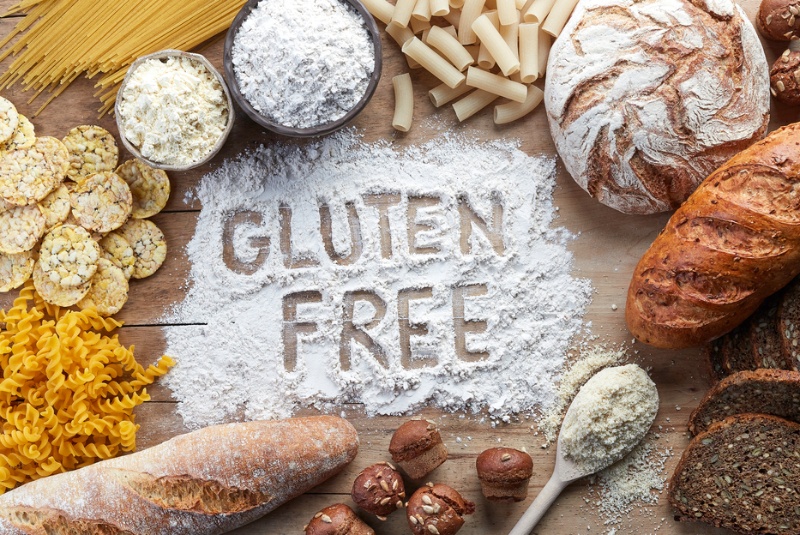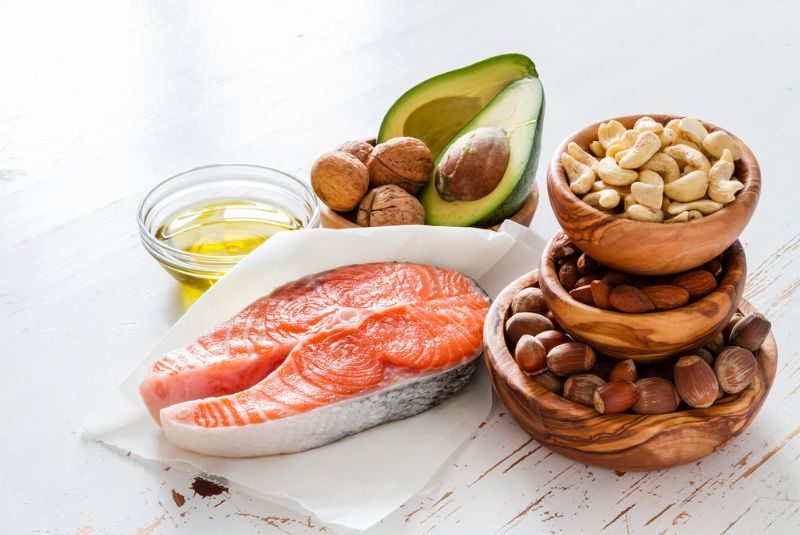Gluten-free living has become increasingly popular, with many people adopting this lifestyle for various health reasons. But is going gluten-free right for you? This comprehensive guide explores the benefits, challenges, and considerations of a gluten-free diet, helping you determine if it's the best choice for your health and well-being.
Understanding Gluten
Gluten is a protein found in wheat, barley, and rye. It provides elasticity and helps food maintain its shape. Common sources of gluten include bread, pasta, cereals, and many processed foods. While gluten is harmless for most people, it can cause serious health issues for those with celiac disease, non-celiac gluten sensitivity, or wheat allergies. Understanding what gluten is and where it's found is the first step in deciding whether a gluten-free lifestyle is suitable for you.
Who Should Avoid Gluten?
People with celiac disease, non-celiac gluten sensitivity, or wheat allergies should avoid gluten. Celiac disease is an autoimmune disorder where gluten intake damages the small intestine, leading to nutrient malabsorption and various health problems. Non-celiac gluten sensitivity causes similar symptoms without the intestinal damage. Wheat allergies trigger allergic reactions upon consuming wheat products. If you suspect you have any of these conditions, consult a healthcare professional for proper diagnosis and guidance on whether you should avoid gluten.
Benefits of a Gluten-Free Diet
For individuals with gluten-related disorders, a gluten-free diet can alleviate symptoms such as bloating, diarrhea, constipation, fatigue, and headaches. It can also improve nutrient absorption and overall health. Some people without diagnosed conditions report feeling better on a gluten-free diet, experiencing improved digestion and increased energy. However, these benefits are often anecdotal and may vary. Understanding the potential benefits of a gluten-free diet helps you make an informed decision about whether it might enhance your health.
Nutritional Considerations
A gluten-free diet can be nutritionally balanced if you focus on whole, naturally gluten-free foods like fruits, vegetables, lean proteins, and gluten-free grains such as quinoa, rice, and corn. However, many gluten-free processed foods are low in fiber and essential nutrients. It's important to ensure you're getting adequate vitamins and minerals, such as iron, calcium, and B vitamins, which are often added to wheat-based products. Consulting with a dietitian can help you create a nutritionally balanced gluten-free diet.

Common Gluten-Free Foods
Many naturally gluten-free foods can be incorporated into your diet. These include fresh fruits and vegetables, lean meats, fish, poultry, eggs, dairy products, nuts, seeds, and legumes. Gluten-free grains and starches include rice, corn, quinoa, millet, and potatoes. Reading labels and choosing whole, unprocessed foods can help ensure your diet remains varied and nutritious. Familiarizing yourself with common gluten-free foods ensures you have a wide range of healthy options to choose from.
Reading Food Labels
Reading food labels is crucial for maintaining a gluten-free diet. Look for certified gluten-free labels on packaged foods, which indicate the product meets strict gluten-free standards. Check ingredient lists for hidden sources of gluten, such as modified food starch, malt, and certain food additives. Be cautious with processed foods, sauces, and condiments, as they may contain gluten. Understanding how to read food labels ensures you can confidently identify safe gluten-free products.
Eating Out Gluten-Free
Eating out while maintaining a gluten-free diet can be challenging, but it's manageable with some preparation. Research restaurants in advance and look for those with gluten-free menus or options. Communicate your dietary needs clearly to the staff and ask questions about food preparation to avoid cross-contamination. Some cuisines, like Mexican or Thai, may offer more naturally gluten-free options. Navigating eating out while gluten-free ensures you can enjoy meals outside your home without compromising your dietary restrictions.
Managing Cross-Contamination
Cross-contamination occurs when gluten-free foods come into contact with gluten-containing foods, making them unsafe for those with gluten-related disorders. To manage cross-contamination, use separate utensils, cutting boards, and cookware for gluten-free and gluten-containing foods. Store gluten-free foods in separate containers and designate specific areas for their preparation. Being vigilant about cross-contamination in your kitchen and when eating out ensures your gluten-free diet remains safe and effective.
Potential Challenges
Adopting a gluten-free diet can present challenges, including higher costs of gluten-free products, limited availability, and social situations where gluten-free options are scarce. Additionally, some people may find it difficult to adjust to the taste and texture of gluten-free foods. It's important to be prepared for these challenges and seek support from friends, family, or online communities. Understanding the potential challenges ensures you are better equipped to maintain a gluten-free lifestyle.
Psychological Impact
Switching to a gluten-free diet can have psychological impacts, including feelings of deprivation or social isolation. It's essential to approach the diet positively, focusing on the benefits and exploring new and delicious gluten-free recipes. Finding a support system, whether through online communities or local support groups, can also help you navigate these emotional challenges. Recognizing and addressing the psychological impact of a gluten-free diet ensures you maintain a positive and healthy mindset.
Gluten-Free and Weight Management
Some people turn to a gluten-free diet for weight management, believing it to be healthier. While a gluten-free diet can lead to weight loss if it reduces processed food intake and increases whole food consumption, it is not inherently a weight-loss diet. Gluten-free processed foods can be just as high in calories, sugar, and fat as their gluten-containing counterparts. Focusing on whole, nutrient-dense foods and maintaining portion control is key for healthy weight management on a gluten-free diet.
Consulting a Healthcare Professional
Before starting a gluten-free diet, it's crucial to consult a healthcare professional, especially if you suspect you have a gluten-related disorder. A doctor or dietitian can provide appropriate testing, diagnosis, and dietary guidance. They can help you create a balanced meal plan and monitor your health to ensure you are meeting your nutritional needs. Consulting a healthcare professional ensures your transition to a gluten-free diet is safe, effective, and beneficial for your overall health.
Exploring Gluten-Free Resources
Numerous resources are available to help you navigate a gluten-free lifestyle. Books, blogs, and websites offer recipes, tips, and information on living gluten-free. Joining support groups or online communities can provide encouragement and advice from others who share your dietary needs. Many apps are available to help you find gluten-free products and restaurants. Exploring these resources ensures you have the information and support you need to succeed on a gluten-free diet.
Choosing a gluten-free lifestyle involves understanding gluten, assessing your health needs, and considering the benefits and challenges. By focusing on nutrition, learning to read food labels, and managing cross-contamination, you can maintain a balanced and safe gluten-free diet. Consulting healthcare professionals and utilizing available resources can further support your journey. Use this guide to determine if a gluten-free lifestyle is right for you, ensuring you make informed decisions for your health and well-being.




